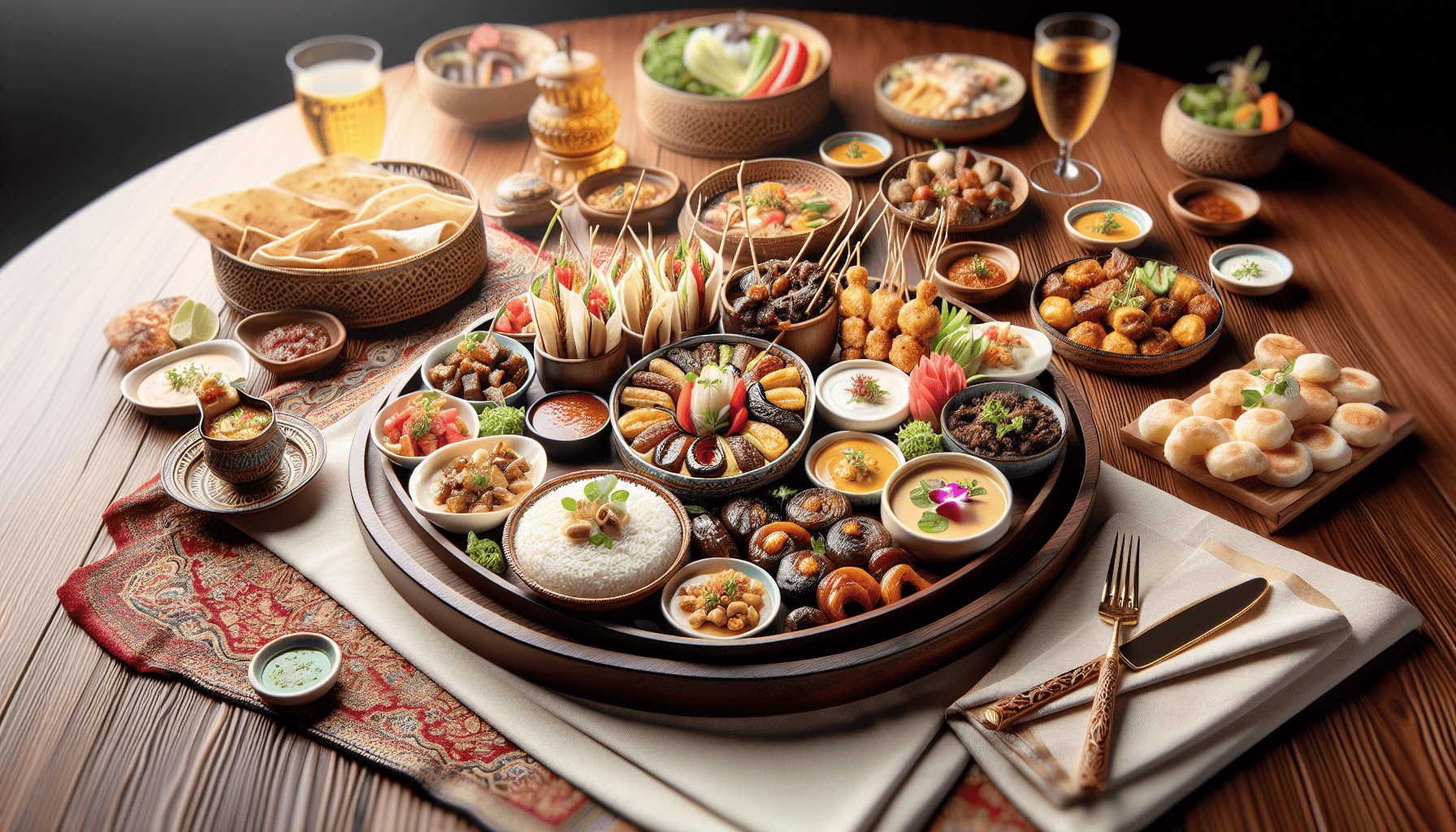Emirati cuisine is a vibrant celebration of the UAE's rich cultural tapestry, blending flavors and techniques that reflect the country's history and its unique position at the crossroads of the world. With influences from Persia, India, East Africa, and the Levant, the dishes of the UAE are a testament to the country's diverse heritage and its Bedouin roots.
One of the most iconic dishes in Emirati cuisine is Machbous, a staple often compared to biryani. This dish features fragrant basmati rice cooked with an aromatic mix of spices such as saffron, cinnamon, cardamom, and cloves, typically adorned with feature protein such as chicken, lamb, or fish. The result is a layered and deeply flavorful dish that demonstrates the Emirati tradition of spice blending, which creates complex and sumptuous culinary experiences.
Another beloved Emirati dish is Harees, a timeless comfort food. This dish, often reserved for special occasions and Ramadan, is made by simmering wheat and meat together slowly until they form a creamy, porridge-like consistency. It is seasoned simply, allowing the natural flavors of the ingredients to shine, and reflecting the Bedouin people's ingenuity in creating nourishing meals with limited ingredients.
Al Harees has a sweet cousin in Al Khanfaroush, a lightly spiced, deep-fried cake made from rice flour and flavored with cardamom and saffron, then drizzled with date syrup or honey. This beloved treat captures the UAE's love for incorporating sweet notes into its cuisine and the cherished role of dates in the Emirati diet, a nod to the date palm tree which is celebrated as a symbol of life and sustenance in the desert.
For seafood lovers, Jasheed offers a tantalizing option. This dish uses spiced shark meat cooked with a rich blend of herbs and spices, melded together with lime, creating a savory dish that is a nod to the maritime culture of the Emirati people. Historically, the region's people relied heavily on the sea for their livelihoods, with pearls and fish forming a vital part of their economy and diet.
The experience of Emirati cuisine is incomplete without tasting Luqaemat, small, golden, fried dumplings soaked in date syrup. These delectable sweet treats are usually enjoyed during festive gatherings, bringing a sense of communal joy and celebration.
Beyond individual dishes, the Emirati dining experience often includes Gahwa, traditional Arabic coffee. Flavored with cardamom and sometimes saffron, this strongly brewed coffee is served in small cups and is an essential part of Emirati hospitality, offering an opportunity for connection and conversation.
Each dish is an edible story, reflecting the Emirati people's journey from their nomadic Bedouin past to their thriving present. Through these dishes, one can experience the warmth, hospitality, and richness of the UAE's cultural mosaic, making Emirati cuisine a captivating dive into a world of tradition and innovation.
